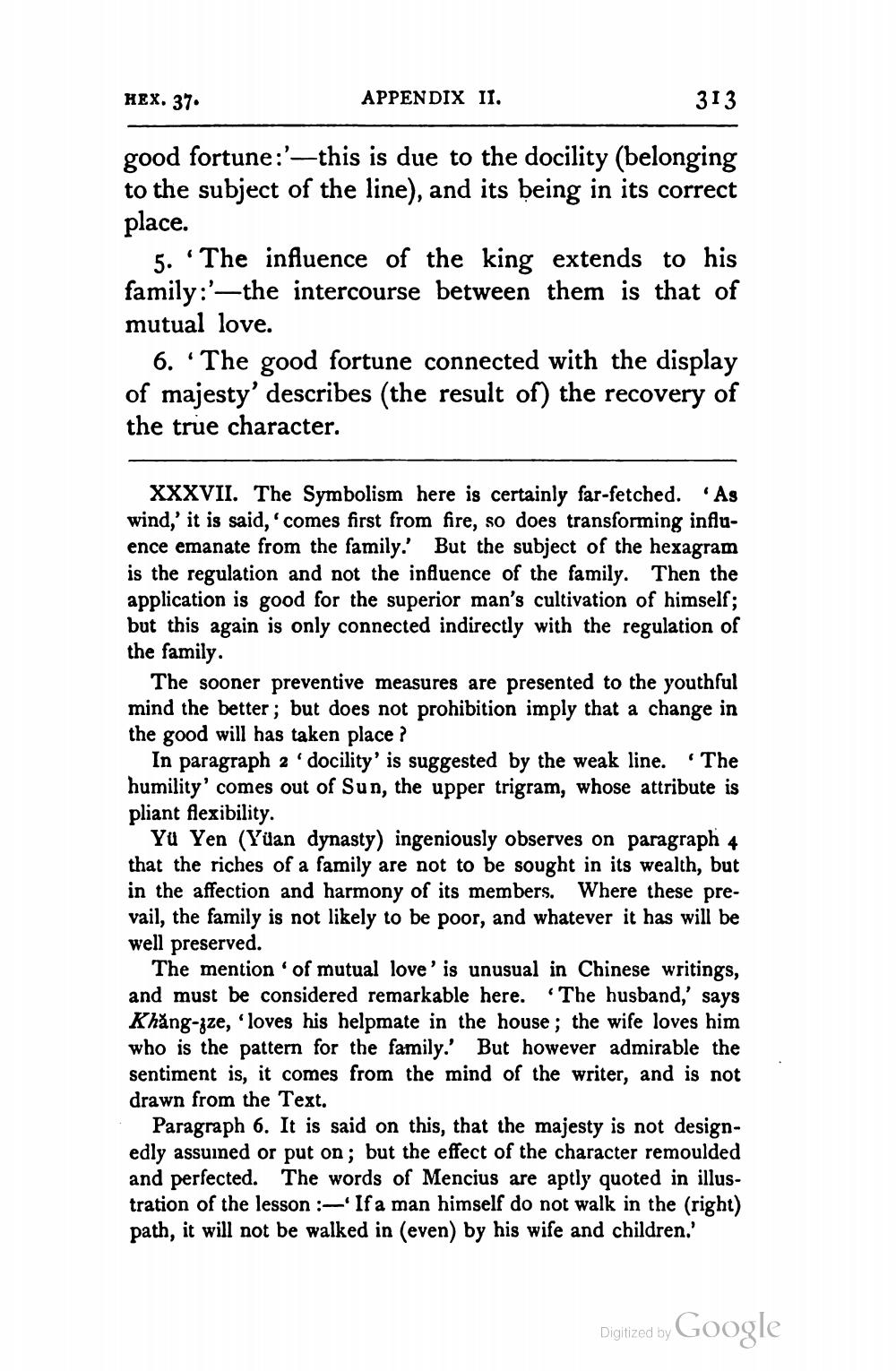________________
HEX. 37.
APPENDIX II.
313
good fortune:'—this is due to the docility (belonging to the subject of the line), and its being in its correct place.
5. “The influence of the king extends to his family:'—the intercourse between them is that of mutual love.
6. “The good fortune connected with the display of majesty' describes the result of) the recovery of the true character.
XXXVII. The Symbolism here is certainly far-fetched. As wind,' it is said, 'comes first from fire, so does transforming influence emanate from the family. But the subject of the hexagram is the regulation and not the influence of the family. Then the application is good for the superior man's cultivation of himself; but this again is only connected indirectly with the regulation of the family.
The sooner preventive measures are presented to the youthful mind the better; but does not prohibition imply that a change in the good will has taken place ?
In paragraph 2 'docility' is suggested by the weak line. "The humility' comes out of Sun, the upper trigram, whose attribute is pliant flexibility.
Yu Yen (Yuan dynasty) ingeniously observes on paragraph 4 that the riches of a family are not to be sought in its wealth, but in the affection and harmony of its members. Where these prevail, the family is not likely to be poor, and whatever it has will be well preserved.
The mention of mutual love' is unusual in Chinese writings, and must be considered remarkable here. The husband,' says Khăng-ize, 'loves his helpmate in the house; the wife loves him who is the pattern for the family. But however admirable the sentiment is, it comes from the mind of the writer, and is not drawn from the Text.
Paragraph 6. It is said on this, that the majesty is not designedly assuined or put on; but the effect of the character remoulded and perfected. The words of Mencius are aptly quoted in illustration of the lesson :- Ifa man himself do not walk in the (right) path, it will not be walked in (even) by his wife and children.'
Digitized by Google




